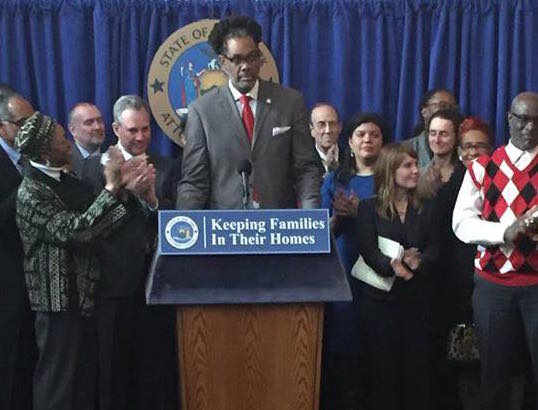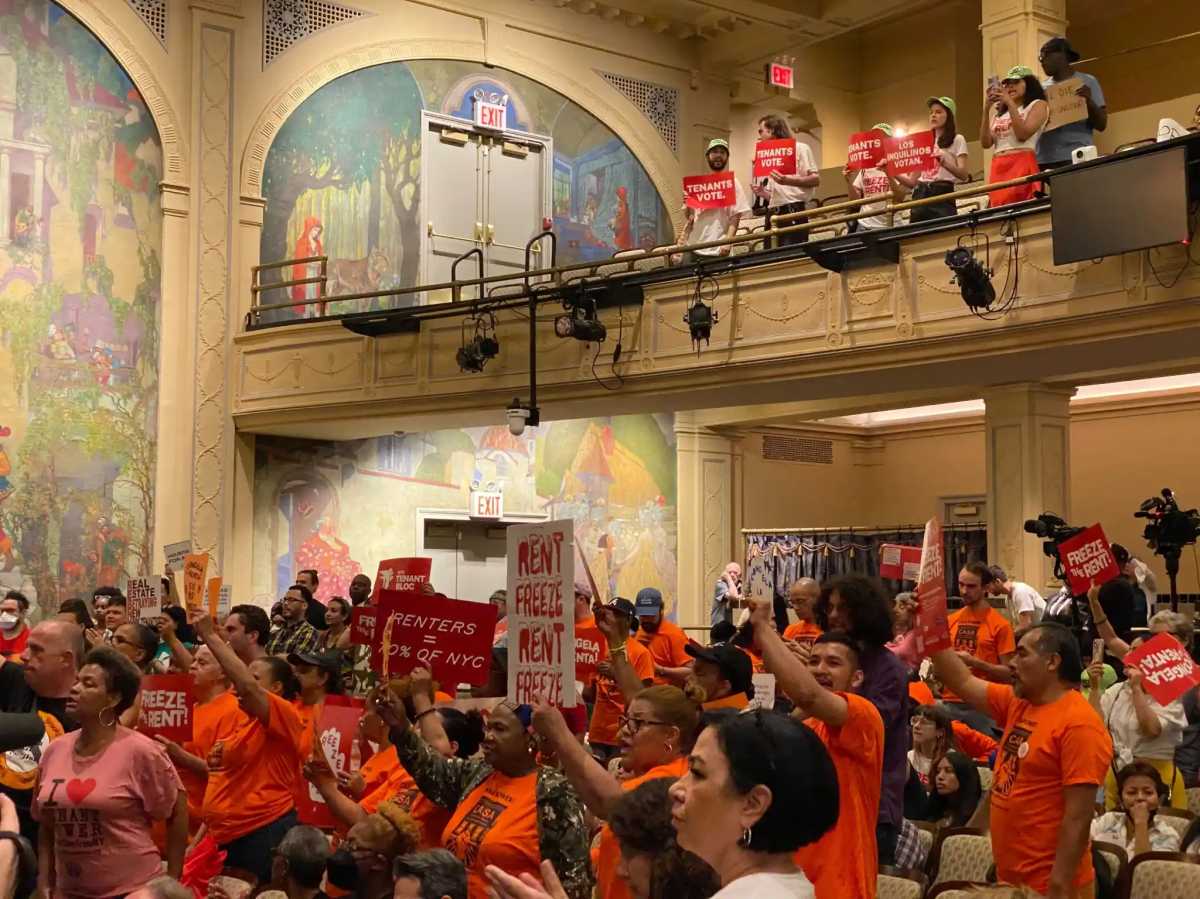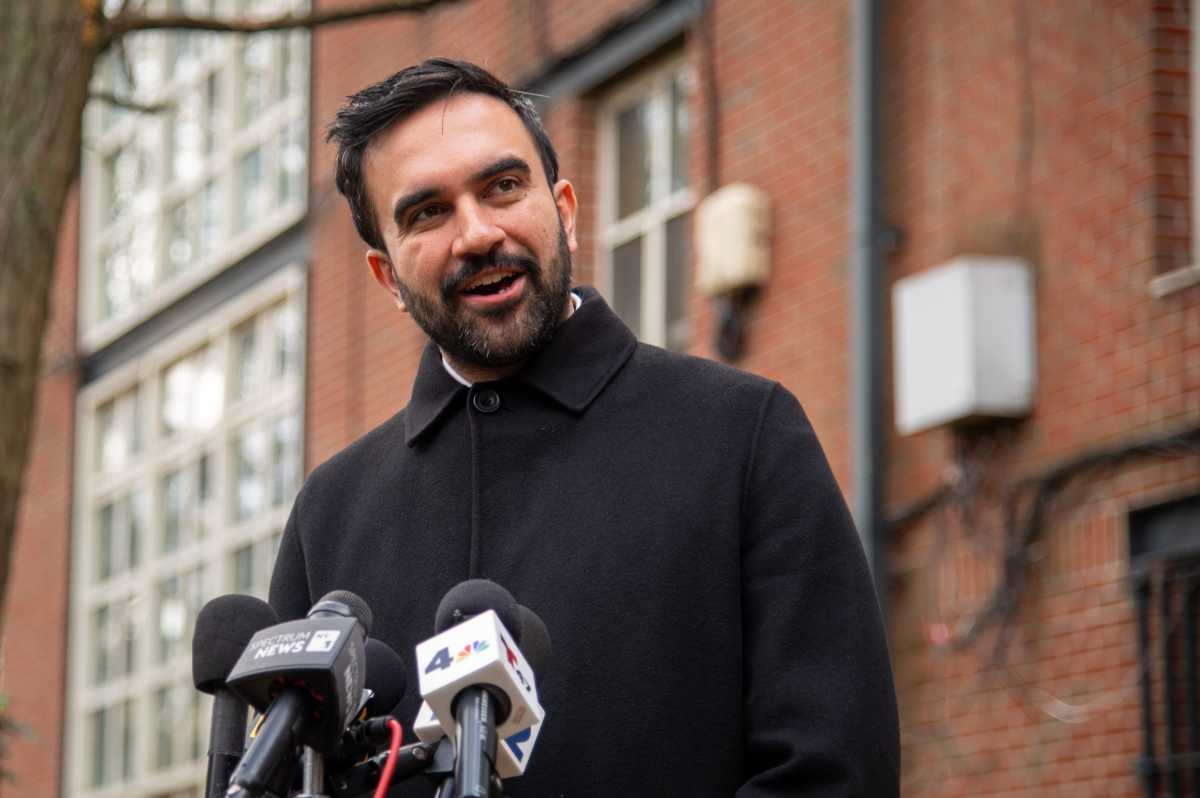When State Attorney General Eric Schneiderman came to Bedford-Stuyvesant two days ago to announce over $20 million in grant funding for his Homeowner Protection Program (HOPP) as well as $350,000 to launch the Foreclosure Rescue Scam Prevention Initiative, several local elected officials as well as community and faith-based organizations reacted with some well-earned pride.

“For more than two years, we have raised the alarm of property theft in our community and its devastating effects on the lives and livelihoods of our residents and businesses,” said City Council Member Robert E. Cornegy, Jr. “The Bedford Stuyvesant community, which includes our local development corporations, community and faith-based institutions and my office, has worked in collaboration to create an awareness campaign to protect residents from real estate scams. As such, we are extremely pleased to have the partnership and support of Attorney General Eric Schneiderman. This recent allocation of resources will undergird this community’s effort to deal with this on-going issue and serve as a model for the nation.”
Foreclosure rescue scams target vulnerable homeowners and, for an upfront fee, generally promise to save their homes by negotiating lower mortgage payments or principal reductions with the homeowners’ mortgage servicers or lenders. After collecting upfront fees, these scam operations fail to provide the services promised, placing their victims at even greater risk of foreclosure. In some instances, scammers actually convince the homeowners to sign over the title to their home.
The scams have been particularly prevalent in Bed-Stuy, which has been a perfect storm scenario for such scams. This includes having a number of senior citizens on fixed income struggling to pay their bills yet owning arguably the nicest brownstone stock in the city, which in turn attracts real estate speculators and hustlers looking to make quick money off flipping brownstones upon the encroaching young affluent class sparking gentrification.
Cornegy and other elected officials singled out Bed-Stuy Legal Services, Bridge Street Local Development Corp., Neighborhood Housing Services (NHS) of Bed-Stuy and IMPACCT Brooklyn (formerly known as Pratt Area Community Council) for their commitment to this issue, and acknowledged the education and outreach conducted by the Brownstoners of Bedford Stuyvesant.

“I am pleased to be here today with Attorney General Schneiderman, officials and community partners to announce the $20 million grant funding available to organizations throughout the State to assist in fighting deed foreclosure scams,” said Assemblymember Annette Robinson (Bedford-Stuyvesant). “I am equally pleased that one of my local Organizations – Neighborhood Housing Services ($50,000)- will receive one of the grants and that other local groups including the Bridge Street Development Corporation and the Bed/Stuy (now Brooklyn) Legal Services have been recipients of grants through the Attorney General’s Homeowner Protection Program. Deed fraud has been an ongoing problem that I and my colleagues have addressed through various forums and workshops. We will continue to fight against those that prey on innocent victims through these scams.”

“I am especially pleased to see some of these resources coming directly to Bedford Stuyvesant where foreclosure prevention is more important than ever amid rising prices and deed theft in particular has become a serious issue. I am so proud of Attorney General Schneiderman who has displayed a strong devotion to preserving the homeownership of our residents,” said Senator Velmanette Montgomery.
“I commend the Attorney General’s initiative to assist and protect our most vulnerable constituents through the Homeowner Protection Program, community outreach and education campaigns. Far too many homeowners have been hit with these foreclosure rescue scams, and as these scams grow in prevalence and sophistication, so must our efforts to combat this criminal activity and protect our most vulnerable citizens,” said Assemblyman Walter Mosley.
Schneiderman made the announcement at the Cornerstone Baptist Church, 289 Lewis Avenue, noting that as with the foreclosure crisis itself, New Yorkers have been hit hard by the foreclosure rescue scam epidemic.
Recent statistics indicate that such rescue scams continue to be a significant problem. As of February 2016, the New York City Department of Finance had 525 open investigations of mortgage rescue scams involving 671 properties across the five boroughs, mostly in Queens and Brooklyn.
“New York has led the nation in developing innovative ways to address the fallout from the foreclosure crisis — including the Homeowner Protection Program, so folks wouldn’t lose their homes because they didn’t have access to an attorney,” said Schneiderman.“Now, with foreclosure rescue scams on the rise, we are enhancing HOPP’s capacity to empower our most vulnerable homeowners to avoid becoming victims of these scams.”
To protect yourself from becoming a victim of a foreclosure rescue scam, the Attorney General offered the following tips. New Yorkers can visit AGScamHelp.com or call 1-855-HOME-456 for more information.
- Be skeptical of online ads or telephone callers that promise they can get you a mortgage modification or save your home from foreclosure. Only your bank or loan servicer can approve a loan modification.
- Visit AGScamHelp.com to determine if a company is legitimate.
- Do not give your personal financial information, such as your bank account number, social security number or the name of your loan servicer, to a caller offering to help save you from foreclosure. Your bank will already have this information.
- Never pay an up-front fee for mortgage-related services. It is a violation of New York law to charge upfront fees for such services, and violations should be reported to the Attorney General’s hotline at 1-855-HOME-456.
- If you believe you have been scammed by a foreclosure rescue operator or a debt relief organization, submit a complaint to the New York State Attorney General’s Office: ag.ny.gov/consumer-frauds/
Filing-a-Consumer-Complaint










